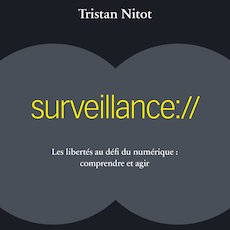This is an interesting question, and each Mozilla contributor will have his/her own answer. Some do it for fun, some because their employer pays them to do so, some both. But what is the underlying goal of the Mozilla project? Is there a plan behind open source?
Well, the goal of the Mozilla Foundation is very clear : "The mission of the Mozilla project is to preserve choice and innovation on the Internet." Ok. Fair enough.
With regards to Free Sofware, things are a tad more complex. The Free Software Foundation says "Free software is a matter of freedom: people should be free to use software in all the ways that are socially useful." then it adds "The enemy is proprietary software". I thought I was helping a great project to take off, and I suddenly find myself embarked on a war against proprietary software!
The guys at the Open Source Initiative take another approach, more related to the technical aspects of opening the source :
The basic idea behind open source is very simple: When programmers can read, redistribute, and modify the source code for a piece of software, the software evolves. People improve it, people adapt it, people fix bugs. And this can happen at a speed that, if one is used to the slow pace of conventional software development, seems astonishing.
Probably a good way to understand the differences between Free Software and Open Source Software is by reading this GNU page
The fundamental difference between the two movements is in their values, their ways of looking at the world. For the Open Source movement, the issue of whether software should be open source is a practical question, not an ethical one. As one person put it, ``Open source is a development methodology; free software is a social movement.'' For the Open Source movement, non-free software is a suboptimal solution. For the Free Software movement, non-free software is a social problem and free software is the solution.
Personnally, I suspect there is a conspiracy to oppose people who prefere blond mustaches to those who prefer black beards...
So far, we have a few reasons to write Free / Open Source sofware:
- We do it because it's fun;
- We do it for Freedom;
- We do it because it's technically superior.
But there is another very good reason in writing free software, and it's a complex one. Even describing the notion is complex. The reason is commons-based peer production. You have to be a lawyer or a teacher in economics for inventing such words. Actually, Yochai Benklerthe guy who has invented this notion is a Law professor working on the economics. I have to say my brain hurts when I read "commons-based peer production", and someone should come up with a simpler name (or maybe just the CBPP acronym) to bring this concept into the mainstream. I would like to thank Ted Leung (from OSAF) for the great thinking :
I don't subscribe to the ideology that all software must be free for all people. What I'm doing is called commons-based peer production of software, which is an economically justified set of techniques for constructing information products that happens to look at a lot like what we call "open source". There's nothing about that which says software has to cost zero dollars. What you need is a way to make the information product available so that the highly efficient resource matching that is at the heart of commons-based peer production can kick in. Today, in what we call open source, that is done via source code licensing. It doesn't mean that's the only way to do it. We're still in the infancy of all types of commons-based peer production. But the key point is this: Benkler's work says that for certain kinds of information products, commons-based peer production is the most efficient method of allocating resources in order to get the job done. No free as in beer ideology or free as in speech ideology needed. No destruction of the notion of intellectual property required. Just simple hard nosed economics. People/creators can and do get paid while doing this. In fact, that's how I'm getting paid right now.
As a conclusion, working on Free software (and to some extent, creative commons), is a mix of all these reasons. Adding the notion that "it's economically superior" is probably something that will be of some interest for people who tend to think in these terms.





